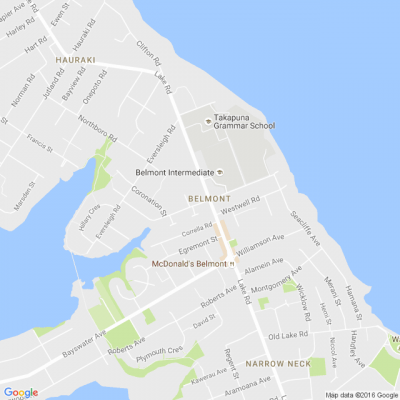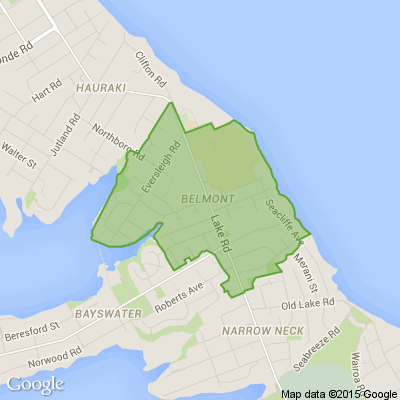Article from Sir Michael Cullen
➔ Below is the article from Sir Michael Cullen: "What really sunk CGT". He has come out swinging after losing the Capital Gains Tax (CGT) debate. It turned out he also did not like such a narrowly based CGT!
QUOTE
Since Prime Minister Jacinda Ardern announced that the Labour-New Zealand coalition had been unable to agree to implement any form of extended capital income taxation (and that while she was Prime Minister the matter was now dead) there has been a great deal of misinformed or ill-informed comment criticising these announcements.
The least justified of these has been the accusation that the Prime Minister showed a lack of leadership. She only had to stamp the ground, apparently, and Winston Peters and New Zealand First would meekly acquiesce in the passing of legislation to which they were opposed.
This shows a fundamental misunderstanding of how a true multiparty MMP government has to work. The three parties involved in the current Government are independent entities with their own policies and public constituencies. Maintaining such a government in a stable mode entails accepting precisely what happened in this case: if there is no agreement there can be no progress on the matter.
Comparisons that some have made with National pushing through partial privatisation of state-owned electricity companies in its first term is fatuous. National had an absolute majority in Parliament in combination with two parties who fully supported the policy and who, in any case, depended for their existence in Parliament on National's grace and favour.
Some of the factual commentary on the final decision rejecting any widening of capital income taxation also seems wide of the mark. New Zealand First did not commit at any stage, as far as I am aware, to support for a Capital Gains Tax (CGT) limited to rental property.
That is not surprising. Capital assets, such as rental property, are more likely to be held by older, pakeha New Zealanders than any other group. That is precisely New Zealand First's primary support base.
As I warned on many occasions, it was always going to be hard to get Peters and his colleagues over the line on a CGT. In any case, New Zealand First's current polling levels scarcely suggest it has political capital to burn.
It seems likely that the option of a CGT limited to rental property (as suggested by the minority on the Tax Working Group) was the position Labour was moving to before the final decision by New Zealand First was delivered.
In that regard I find myself strangely indebted to Peters as I would have found it difficult to welcome such a narrowly based CGT.
It is hard to understand why those renting out properties, a necessary part of the housing market, should be singled out from all others who benefit from the largely unearned increment derived from the almost inexorable rise in land prices. The exemption of the family home was a political necessity.
It is also true that when people sell their home they usually buy another, so it is less of a concession than appears on the face of it.
Nevertheless, the failure to introduce a broad-based tax on investment in land will only continue to encourage over-investment in land compared with other assets. The difficulties for young families buying their own home and the growing dominance of large corporates in gobbling up farmland will, therefore, not abate.
Federated Farmers has ended up supporting the interests of old farmers selling out to those corporates rather than young farmers trying to get on to the land – thus shrinking further its own membership base.
And a nation of elderly renters rather than homeowners will, in the future, have to face the fact that New Zealand Superannuation is not sufficient, by itself, to pay for rents in most of our population centres.
For these kinds of reasons I would not have been alarmed if the active business and Australasian equities parts of the proposals had been set aside, at least for the time being, as they had the greatest complexity and difficulty in application.
But to exempt holiday homes (some worth millions) and landed assets, other than that under the family home, would have left an unfair and far too limited a range of assets in the net.
The fact is that the vested interests opposed to any change were well organised, funded, not too careful with the truth at times and, of course, fully supported by a tribe of right-wing shock jocks on private radio who dominate our airwaves during the day.
To these stayed the spoils and so New Zealand remains almost the only rich democracy without a broad-based CGT.
National claims victory - though their over-the-top pronouncements were unlikely to have been the decisive factor. It will prove to be a Pyrrhic victory anyway: National hoped to ride the CGT horse to victory in 2020 but Peters has shot the horse out from under them. And Ardern's statement means that for National there is no hope of it being flogged back into life.
The real failure in the debate was the absence from it of all the groups who might be expected to support a fairer tax system. Only near the end did a group emerge, but it muddied the picture by throwing into the debate a whole set of other proposals as well.
Where were the social justice groups, the Salvation Army and the churches, the public sector unions clamouring for large wage increases, indeed all those who keep discovering new social crises in the social services left by the previous National government?
The fact is they largely only rode on to the scene after the battle was lost, while blaming the Government for losing it.
The liberal/left groups in New Zealand need to learn that overcoming vested interests in the pursuit of a fairer society requires at least the same level of dedication and application as those vested interests demonstrate. As a great American trade unionist once famously said, "Don't mourn, organise."
Where to now with no new tax base? All is not lost. The immediate need for the Government is to recognise the fact that the continued existence of a substantial boundary between what is called income on capital account and income on revenue account presents an ongoing challenge for the enforcement and integrity of the tax system.
Right now some of the same vested interests referred to above and their accountants are busy thinking up ways to move income out of the revenue account (and so taxed) and into the capital account (and so not taxed).
The Government and IRD need to come down hard on such artificial tax avoidance schemes. There needs to be more test cases taken to establish what are the current limits in the law on such behaviour. And there needs to be legislative changes to ensure that the more egregious examples are dealt to.
Peters, given his track record, can surely not object to this. The only issue is whether IRD is up to the job, having suffered some ill-thought-through restructuring which has seen the loss of some of its best and brightest.
If not, then the Government needs to address that as a matter of urgency as well.
UNQUOTE
• Sir Michael Cullen is the former chairman of the Tax Working Group, set up to recommend to the Government changes to the tax system. Among its proposals was a Capital Gains Tax.

Auckland Seniors & Travel Expo
Neighbourhood locals are invited to the Auckland Seniors & Travel Expo, a relaxed and welcoming event bringing lifestyle, leisure, and travel together under one roof. Meet 50+ exhibitors showcasing travel ideas, retirement living, mobility solutions, health services, finance, and local clubs. Enjoy live music from Kulios, café seating, door prizes, and be in to win a Luxury Beachfront Escape for Two to Rarotonga.
North Harbour Stadium
28 February & 1 March
10:00am – 3:00pm
$10 entry

Have you got New Zealand's best shed? Show us and win!
Once again, Resene and NZ Gardener are on the hunt for New Zealand’s best shed! Send in the photos and the stories behind your man caves, she sheds, clever upcycled spaces, potty potting sheds and colourful chicken coops. The Resene Shed of the Year 2026 winner receives $1000 Resene ColorShop voucher, a $908 large Vegepod Starter Pack and a one-year subscription to NZ Gardener. To enter, tell us in writing (no more than 500 words) why your garden shed is New Zealand’s best, and send up to five high-quality photos by email to mailbox@nzgardener.co.nz. Entries close February 23, 2026.

Poll: 🤖 What skills do you think give a CV the ultimate edge in a robot-filled workplace?
The Reserve Bank has shared some pretty blunt advice: there’s no such thing as a “safe” job anymore 🛟😑
Robots are stepping into repetitive roles in factories, plants and warehouses. AI is taking care of the admin tasks that once filled many mid-level office jobs.
We want to know: As the world evolves, what skills do you think give a CV the ultimate edge in a robot-filled workplace?
Want to read more? The Press has you covered!

-
52.3% Human-centred experience and communication
-
15% Critical thinking
-
29.8% Resilience and adaptability
-
2.9% Other - I will share below!







 Loading…
Loading…








